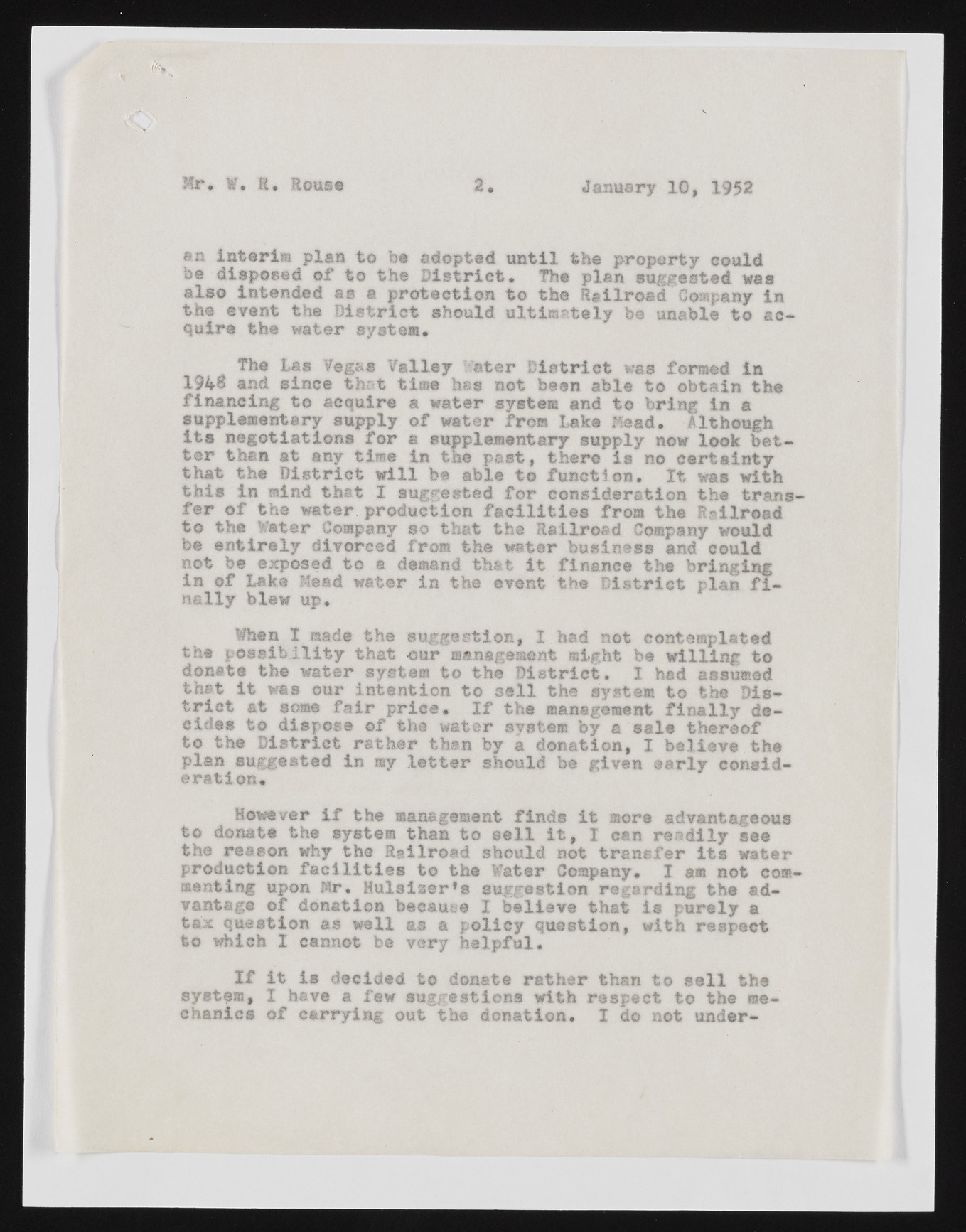Copyright & Fair-use Agreement
UNLV Special Collections provides copies of materials to facilitate private study, scholarship, or research. Material not in the public domain may be used according to fair use of copyrighted materials as defined by copyright law. Please cite us.
Please note that UNLV may not own the copyright to these materials and cannot provide permission to publish or distribute materials when UNLV is not the copyright holder. The user is solely responsible for determining the copyright status of materials and obtaining permission to use material from the copyright holder and for determining whether any permissions relating to any other rights are necessary for the intended use, and for obtaining all required permissions beyond that allowed by fair use.
Read more about our reproduction and use policy.
I agree.Information
Digital ID
Permalink
Details
Member of
More Info
Rights
Digital Provenance
Publisher
Transcription
Mr, W. R. Rouse 2 January 10, 1952 an interim plan to be adopted until the property could be disposed of to the District. The plan suggested was also intended as a protection to the Railroad Company in the event the District should ultimately be unable to acquire the water system. The Las Vegas Valley ater District was formed in 194$ and since that time has not been able to obtain the financing to acquire a water system and to bring in a supplementary supply of water from Lake Mead. Although its negotiations for a supplementary supply now look better than at any time in the past, there is no certainty that the District will be able to function. It was with this in mind that I suggested for consideration the transfer of the water production facilities from the Railroad to the Water Company so that the Railroad Company would be entirely divorced from the water business and could not be exposed to a demand that it finance the bringing in of Lake Mead water in the event the District plan finally blew up. When X made the suggestion, I had not contemplated the possibility that our management might be willing to donate the water system to the District. I had assumed that it was our intention to sell the system to the District at some fair price. If the management finally decides to dispose of the water system by a sale thereof to the District rather than by a donation, I believe the plan suggested in my letter should be given early consideration. However if the management finds it more advantageous to donate the system than to sell it, I can readily see the reason why the Railroad should not transfer its water production facilities to the Water Company. I am not commenting upon Mr. Hulsizerfs suggestion regarding the advantage of donation because I believe that is purely a tax question as well as a policy question, with respect to which I cannot be very helpful. If it is decided to donate rather than to sell the system, I have a few suggestions with respect to the mechanics of carrying out the donation. I do not under

